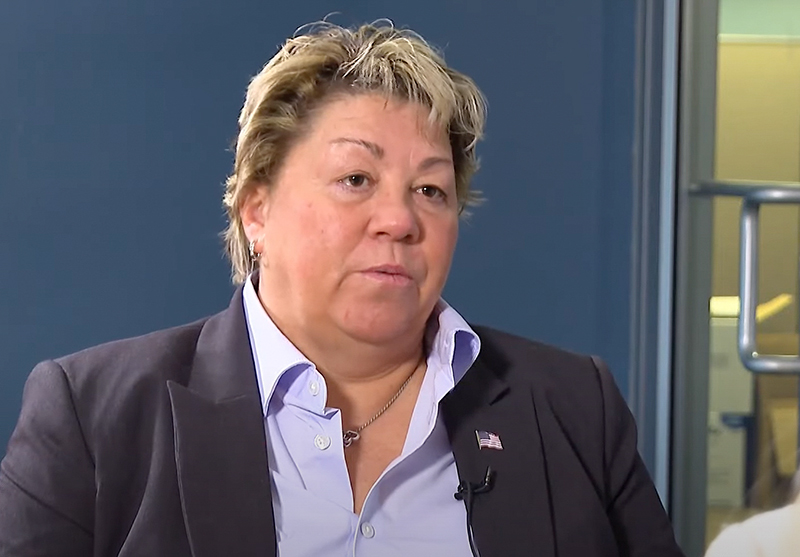Open vs. Monogamous Love: What the Research Really Says
A analysis of several studies revealed interesing facts about polyamorous and open relationships versus those that are strictly monogamous.

A new study claims that people in non-monogamous relationships are just as happy as those with only one partner.
The analysis, published in The Journal of Sex Research on March 24, measured the difference in romantic satisfaction and sexual satisfaction between those practicing monogamy and those practicing non-monogamy.
Researchers analyzed 35 studies across the United States, Australia, and Europe that looked at 24,489 people involved in both types of relationships between 2007 and 2024. Respondents in those studies shared how they felt about their romantic lives and their sex lives.
The analysis found that satisfaction levels remained the same regardless of the type of relationship that people were involved in and regardless of whether they were heterosexual or LGBTQ.
The analysis found that satisfaction levels were similar among those practicing monogamy and those practicing various forms of non-monogamy — with no difference between whether respondents were involved in an “open relationship,” where they are allowed to have physical intimacy with others, or involved in a polyamorous relationship, experiencing multiple romantic entanglements simultaneously.
Researchers noted that the findings of the analysis “challenged the monogamy-superiority myth,” a widespread belief that monogamy offers “greater satisfaction, intimacy, commitment, passion, and trust” than non-monogamous arrangements.
The study’s lead author, Joel Anderson, noted that the idea of monogamy as being “superior” to other arrangements is a commonly held belief among members of the general public and is often perpetuated and reinforced by how media depicts adult relationships.
Anderson told The Independent noted that people in non-monogamous relationships can face stigma or discrimination — an assertion backed up by other past studies finding that they are often targets for disapproval, with people expressing discomfort with or devaluing their relationships, leading to psychological and emotional distress, or non-monogamists being told their arrangements are “perverse,” “immoral,” “flawed,” or even “unhygienic.”
People in non-monogamous relationships also frequently have their relationships erased by their peers and in media depictions and may even be judged or have their feelings invalidated by mental health professionals.
“Romantic and sexual satisfaction significantly contribute to our overall well-being. These results call into question some of the common misconceptions about non-monogamy,” Anderson said. “What we see is that those non-monogamous relationships have great relationships and great sex, in spite of the fact that their relationships come under scrutiny in most societies, and in spite of the fact that they experience differential or even prejudiced treatment because of their relationships structures, which are viewed as out of the norm.”
A 2017 study found that 4% to 5% of North Americans are involved in some form of consensual non-monogamy, with 21.9% reporting that they were in a non-monogamous arrangement at some point, and 12% stating that consensual non-monogamy would be their ideal arrangement.
Anderson told The Guardian that his research suggests that satisfaction in relationships is not derived from their structure but the level of communication and how partners seek to meet each other’s needs.
“This highlights the need to move beyond mononormative assumptions around relationships and families and to create space — socially, culturally, and professionally — for the full spectrum of relationship possibilities,” he said. “When people are supported to build the kinds of relationships that work for them, everyone benefits.”
Support Metro Weekly’s Journalism
These are challenging times for news organizations. And yet it’s crucial we stay active and provide vital resources and information to both our local readers and the world. So won’t you please take a moment and consider supporting Metro Weekly with a membership? For as little as $5 a month, you can help ensure Metro Weekly magazine and MetroWeekly.com remain free, viable resources as we provide the best, most diverse, culturally-resonant LGBTQ coverage in both the D.C. region and around the world. Memberships come with exclusive perks and discounts, your own personal digital delivery of each week’s magazine (and an archive), access to our Member's Lounge when it launches this fall, and exclusive members-only items like Metro Weekly Membership Mugs and Tote Bags! Check out all our membership levels here and please join us today!






















You must be logged in to post a comment.